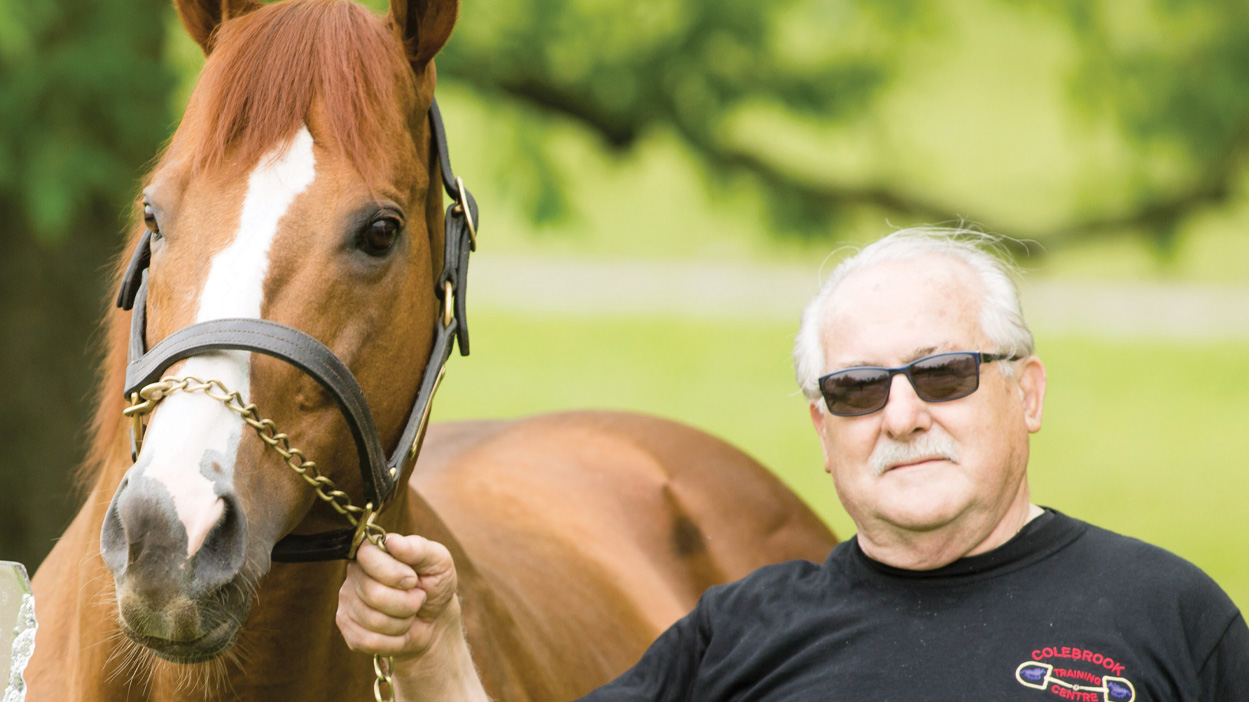Colebrook Farms’ founder John Burness has been breeding and racing horses in Ontario for more than 40 years and has a deep love for the industry. He has maintained one of the top stallion stations in the country, provided the racing industry with a litany of horses for the Woodbine circuit and he is a racing fan and sharp handicapper, as well. A strong proponent for the Ontario-sired program, Burness has worked to better the industry by sitting on the CTHS (Ontario) board and Jockey Club of Canada.
What are the most critical challenges facing the industry in Canada today?
“The worst thing going on right now is not doing anything to keep people in the breeding business, people who are in it right now. That’s number one. And, not because I am a breeder or on the CTHS (Ontario) board, I speak mostly about the health of the industry, not about myself. I am fortunate enough to do whatever I want, within my means, as far as breeding. I worry about the smaller breeders that have four or five mares that are no longer going to be breeding because what is happening in the industry with losing our Ontario sired stake races now. There is no support for the Ontario sired program, period.
“I I fail to understand why [Woodbine] thinks it will lure people from in the U.S. when they are running at tracks there in five and six-horse fields for big purses.”
What needs to change about the industry in the next 5-10 years?
“If you do not have a strong, regional breeding program, you do not have racing. I have seen the decline. When we went away from our (slots) deal that we had with OLG in 2012 you have seen what has happened to our breeding in Ontario. I am seeing more and more people booking to stallions down in the U.S.
“I have not sent a mare down to the U.S. to be bred since the Ontario-sired program started. I have taken three mares down there this year and I am sending more as soon as they foal. I don’t know what I am going to do going forward but I may start looking at the Pennsylvania program.
“The way the [incentives] are now, people can buy a mare in Kentucky, foal her out here and you’ve got your incentive money [Mare Recruitment Program]. You don’t have to sell the baby here, you don’t have to have to breed her back here. What is that going to do for the industry here?
“I have been in the business 45 years and whatever track I look at, Gulfstream or Aqueduct, all I see is cheap horses putting on the program and then you have the elite horses in the feature races. That’s what every track makes its money with, the cheap horses and big fields. Give me a big field of claimers and people will bet their brains out on the gimmicks and combinations. Then all I hear is that we need better mares, we need better horses. No, what you need is more horses.”
How can you help affect that change?
“I have tried until I’m blue in the face. Look, I am passionate about the game, I spend money in the game and I feel bad for the people that are here that are not getting any help.
“Now, I was recently at the January Horses of All Age sale at Keeneland, I have bought more mares. There were all kinds of nice mares in foal to solid, $15,000 (U.S. fee) stallions and with the incentive, locals can take advantage of that program at the U.S. sales.
“The Mare Purchase Program is a nice deal, you get some money back by buying a mare in the denoted range. It’s nice to get something back and then you get another bonus if you breed her back to an Ontario sire.”
Where do you see the thoroughbred industry in Canada in 10 years?
“In three to five years from now I feel that there will not be any horse population in Canada to put on a program of eight races for four days a week going forward. We are going to be struggling this year and next year is going to be worse. As I go down to Kentucky I see what they are doing – increased purses such as at Turfway Park where a maiden race is worth $40,000 now when it used to be $20,000. Every level has been bumped up. Why would a guy racing down there ship up here to race for a 70 cent dollar?
“If you don’t have breeders in Ontario to give you product, you won’t have racing. We need more horses, period.”


